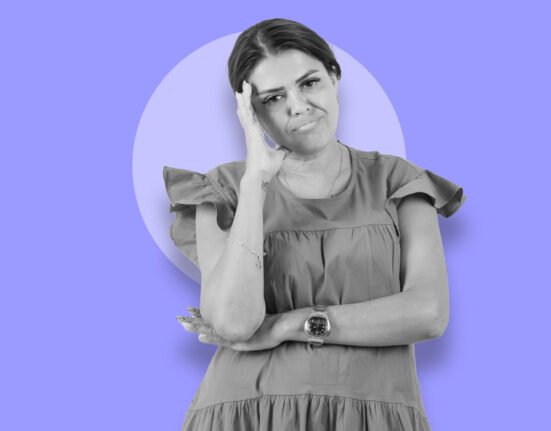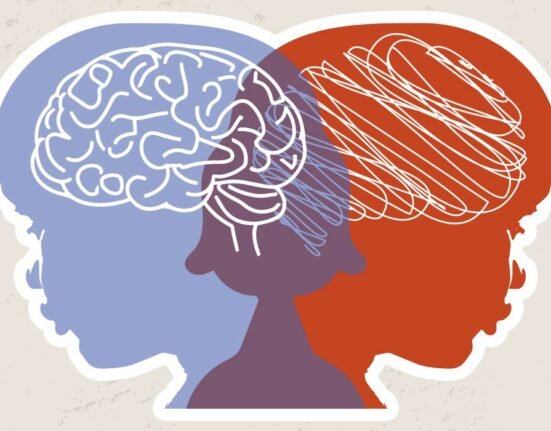The typical perception of people with Attention Deficit Hyperactivity Disorder (ADHD) is one of restlessness and distractibility. Beyond these defining symptoms, however, emotional dysregulation is another, frequently misinterpreted factor that subtly influences the everyday lifestyle of people with ADHD. This refers to an inability to control one’s emotions, resulting in intense, prolonged, or out-of-proportion reactions. As a result, it leads to minor irritations or disagreements, which can further feel emotionally explosive in people with ADHD, and it can further make relationships, employment, and self-worth even more challenging.
Although it isn’t formally recognised as a diagnostic criterion for ADHD, research is beginning to show how common and significant emotional dysregulation is. Anger, frustration, sadness, and even excitement are all difficult for many people with ADHD, especially adults. The way the ADHD brain interprets stimuli and regulates impulses is closely linked to this emotional instability, which goes beyond moodiness or oversensitivity. This article examines the neurological and psychological causes of emotional dysregulation, the reasons why minor triggers can feel overwhelming to individuals with ADHD, and the treatment and everyday life implications. (Shaw et al., 2014)
Understanding emotional dysregulation in ADHD
The inability to control emotional reactions in a way that is consistent with both individual objectives and societal norms is known as emotional dysregulation in ADHD. Individuals with ADHD might feel emotions more strongly and have a harder time getting back to normal after being upset. These difficulties frequently result from neurological impairments that impact how emotions are processed and controlled, rather than from a lack of desire to control emotions. (Corbisiero et al., 2013)
According to Martz, Weiner, and Weibel (2023), adults with ADHD exhibit various forms of emotional dysregulation. Some people have heightened reactivity, experiencing emotional outbursts and find it difficult to stop and consider their actions. Others might struggle to recognise or express their emotions, which could result in suppressed feelings that flare up under stress. People frequently exhibit emotional impulsivity, which makes their social interactions and self-perception even more difficult.
Read More: How ADHD Affects Emotional Regulation
Why small triggers cause big reactions
In ADHD, the brain’s capacity for executive functioning to regulate activities like planning, organising, and impulse control is impaired. We can say that emotional regulation is another important function of these same brain regions. Because of this overlap, people with ADHD frequently have trouble processing emotional information and reacting appropriately (Shaw et al., 2014).

The brain reacts more sensitively to even the smallest stressor, such as a loud noise, a change in plans, or a small criticism. When such strong reactions appear, others might feel this is excessive, but they are intensely felt and very real to the person experiencing them. It is essential to note here that this increased emotional reaction is not the result of weakness in character or a lack of willpower. Instead, it’s connected to brain structure and function variations.
In scientific terms, the ADHD brain displays impaired top-down regulation, which means that the amygdala and other more reactive emotional centres are less able to modulate responses from higher brain regions that control behaviour and emotions. As a result, it takes longer to calm down, and emotional stimuli are experienced more vividly. (Petrovic and Castellanos, 2016)
Real-life implications of emotional dysregulation
Emotional dysregulation can impact almost every aspect of a person’s life. It may result in emotional outbursts, frequent misunderstandings, or an inability to have calm conversations about relationship problems. It could also manifest at work or school as burnout from emotional exhaustion, difficulty accepting criticism, or frustration over minor setbacks.
These difficulties are frequently made worse by social stigma. Emotional dysregulation can be mistaken for immaturity or a refusal to “just calm down” because it is less obvious than hyperactivity or inattention. People with ADHD may find it even more difficult to seek help or comprehend their own behaviour as a result of this judgment, which can cause feelings of shame and loneliness. (Martz et al., 2023)
The role of self-awareness and coping strategies
One of the most crucial strategies for treating emotional dysregulation is self-awareness. Understanding one’s own emotional patterns enables people to foresee triggers and apply coping mechanisms to reduce their effects. This could involve journaling, mindfulness exercises, or cognitive behavioural strategies meant to reframe ideas before they become intense emotional responses.
Professional mental health assistance is also essential. It is possible to teach and develop emotional regulation skills over time. Research shows that treating emotional dysregulation directly improves outcomes in both emotional and functional domains. For example, Dialectical Behaviour Therapy (DBT) and ADHD-specific Cognitive Behavioural Therapy (CBT) can be particularly successful because they address both emotional well-being and ADHD symptoms. (Corbisiero et al., 2013)
Medication and emotional regulation
Medications are one of the most commonly used types of treatment for ADHD. Drugs or stimulant medications like methylphenidate and amphetamines work effectively. They can assist people in pausing before emotionally reacting by enhancing attention and decreasing impulsivity. However, pharmacological treatment is most impactful when paired with behavioural interventions and environmental support. (Shaw et al., 2014) For individuals at work and school, the most comprehensive approach to treatment would be to incorporate peer support, training in emotional skills, counselling, and useful accommodations. This also gives people the tools they need to better control their emotions.
Read More: Emotion Regulation Across the Lifespan: Mechanisms and Outcomes
Conclusion
To conclude, emotional dysregulation is significant but often overlooked as a component of ADHD that directly impacts how a person reacts or interprets daily events. Their brain is wired to experience emotions more intensely and less controllably. People with ADHD can learn to manage their emotional landscapes more confidently and effectively with a combination of self-awareness, therapy, and potentially medications. Managing symptoms is only one aspect of acknowledging the emotional side of ADHD; another is validating people whose experiences are daily.
FAQs
1. What is emotional dysregulation in ADHD?
Emotional dysregulation in ADHD refers to intense, quick-changing emotions that feel hard to manage. People with ADHD may overreact to small triggers and struggle to calm down afterwards.
2. Why do small things feel overwhelming for people with ADHD?
Due to differences in brain function, especially in emotional control centres, individuals with ADHD often experience heightened sensitivity to stress or frustration, making everyday challenges feel intense.
3. Can emotion dysregulation in ADHD be treated?
Yes. Strategies like cognitive-behavioural therapy (CBT), mindfulness, and medication can help manage emotional reactivity. Learning emotional regulation skills can also make daily life more balanced and manageable.
References +
Corbisiero, S., Stieglitz, R.D., Retz, W. et al. Is emotional dysregulation part of the psychopathology of ADHD in adults? ADHD Atten Def Hyp Disord 5, 83–92 (2013). https://doi.org/10.1007/s12402-012-0097-z
Martz, E., Weiner, L., & Weibel, S. Identifying different patterns of emotion dysregulation in adult ADHD. border personality disorder emotional dysregulation 10, 28 (2023). https://doi.org/10.1186/s40479-023-00235-y
Petrovic, P., & Castellanos, F. X. (2016). Top-down dysregulation—from ADHD to emotional instability. Frontiers in behavioural neuroscience, 10, 70.
Shaw, P., Stringaris, A., Nigg, J., & Leibenluft, E. (2014). Emotion Dysregulation in Attention Deficit Hyperactivity Disorder. American Journal of Psychiatry, 171(3), 276– 293. https://doi.org/10.1176/appi.ajp.2013.13070966












Leave feedback about this